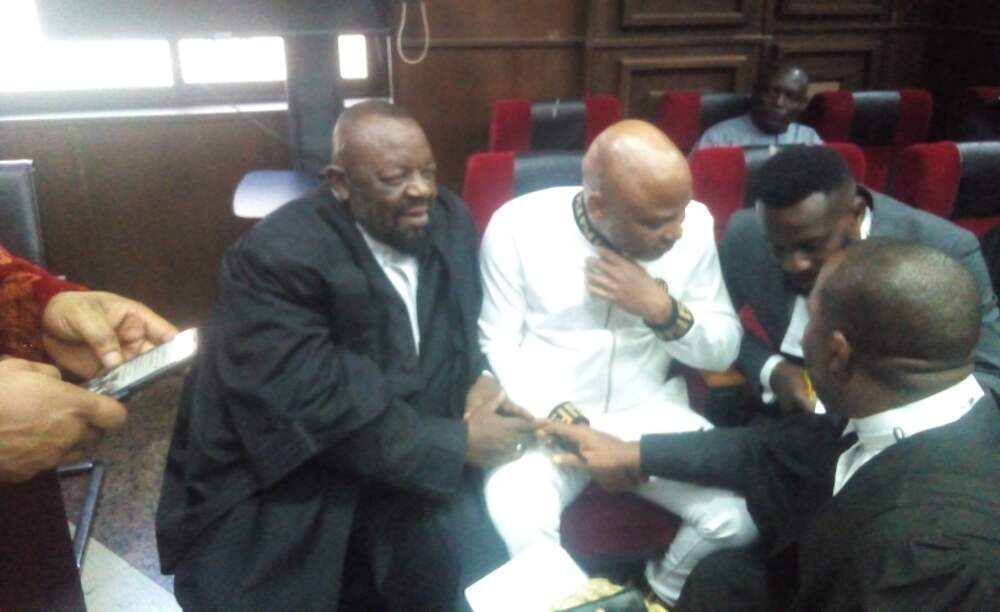Kanu’s Defence Slams ‘Case To Answer’ Claims, Insists On Unconditional Release
The legal team representing the leader of the Indigenous People of Biafra (IPOB), Mazi Nnamdi Kanu, has dismissed claims that he “has a case to answer”, describing such assertions as legally unfounded.
A statement by Barrister Christopher Chidera of the Mazi Nnamdi Kanu Global Defence Consortium said recent commentary suggesting that Kanu’s trial is valid under existing Nigerian law is “misinformed and contrary to the provisions of current statutes.”
According to Chidera, the charges against Kanu are based on repealed legislation and therefore cannot stand in any competent court.
He explained that the prosecution continues to rely on the Terrorism (Prevention) (Amendment) Act 2013, which was repealed and replaced by the Terrorism Prevention and Prohibition Act 2022, signed into law by former President Muhammadu Buhari on May 12, 2022.
“The 2013 Act no longer exists in the eyes of the law. Section 98(1) of the 2022 Act expressly repeals the previous Act, and there is no savings clause to sustain any charges brought under the old law,” Chidera said.
He added that Mazi Kanu had, through a motion filed on October 30, 2025, challenged the continued reliance on the repealed law, noting that it violates Section 36(1) of the 1999 Constitution (as amended), which guarantees a fair hearing based on existing and valid laws.
Advertisement
The defence counsel further argued that the Federal High Court lacks jurisdiction to continue the trial due to the manner in which Kanu was brought into Nigeria in 2021.
“Mazi Kanu was unlawfully taken from Kenya in clear breach of international protocols and Nigeria’s Extradition Act,” Chidera stated.
“The Kenyan High Court, in its judgment of June 24, 2025, confirmed that the process was illegal and violated Kenya’s sovereignty and extradition procedures.”
Citing the Terrorism Prevention and Prohibition Act 2022, he said Section 76(1)(d)(iii) only allows the Federal High Court to assume jurisdiction over offences committed outside Nigeria if the conduct also constitutes an offence in the foreign country and if extradition was properly executed.
“There was no valid extradition treaty process followed in this case, which means the court has no jurisdiction to try the matter,” he explained.
Advertisement
Chidera also referenced the Court of Appeal’s 2022 decision in FRN v. Kanu, which discharged Kanu on grounds of illegal rendition, stating that the ruling remains a significant judicial finding in the case.
He urged the Nigerian Bar Association and human rights advocates to speak out against what he described as a continuing violation of Kanu’s rights.
“Mazi Nnamdi Kanu’s continued detention despite these clear legal and procedural breaches is unjustifiable. His unconditional release is both a legal necessity and a matter of justice,” he said.
He called on the authorities to comply with the rule of law and for Kanu’s immediate release from custody.

